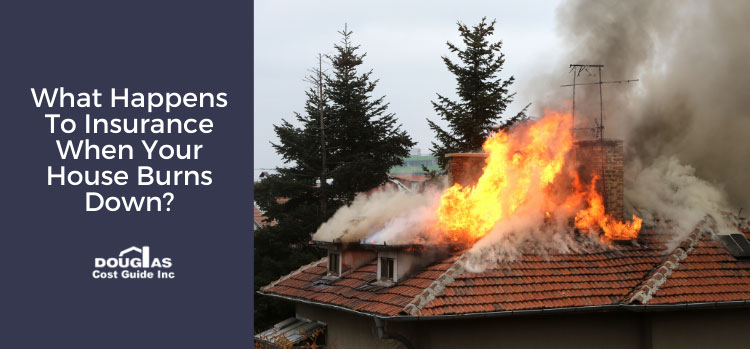A house fire of any magnitude is a devastating and traumatic event. These losses are the exact reason you have home insurance. You can take comfort in knowing that your insurance policy is designed to help you navigate through this time and get you back on your feet. In the direct aftermath of a fire, homeowners are often left thinking, ‘now what?’ The simple answer: call your insurance agent or broker.
What Do Insurance Companies Do When Your House Burns Down?
There are coverages listed in your homeowner’s policy to help with costs of replacing lost personal items, rebuilding, or replacing your home and covering costs of additional living expenses such as hotel or apartment rentals, meals, and emergency items. The first thing to do after a fire, when everyone has been evacuated and safe, is to call your agent or broker to report the insurance claims. Your insurance agent or broker will support you through the process and walk you through each step. Your insurance company will open a claim and assign an insurance adjuster to your claim.
What to Expect from an Insurance Adjuster After a House Fire
An insurance adjuster’s job is to visit your home in the aftermath of a loss, complete a walk-through, and document the extent of the damage to report back to the insurance company. It is important to be prepared and present for the insurance adjuster’s walk-through: take photos, document damage, keep a detailed record of any specialty items lost, or questions you may have.
It is the adjuster’s job to determine the most cost-effective way to complete the repair or replacement of your home and lost items. For some personal items, the adjuster may deem it more cost-effective to replace an item that experienced smoke damage, rather than pay for cleaning and restoration of an item; however, if there are specific items that hold personal value to you, or there are family heirlooms that cannot be replaced, it’s important to mention this to the adjuster and ask questions about any items or areas you may be concerned with.
If Your House Burns Down What Does Insurance Cover?
After an insurance adjuster’s visit, the ultimate question will always be, how much will the insurance company pay out? The answer is dependant of the type on homeowner’s policy you purchased.
Replacement Cost Policy
The most common, and most advised policy is a replacement cost policy. A replacement cost policy is designed to put you back in the same position you were in prior to experiencing a loss. Your insurance company will cover the extent of your home’s repair or rebuild up to the replacement cost value of your home.
The replacement cost of your home is determined upon your policy’s inception and is based on many factors including the age, size, shape and finishes of your home. Replacement cost estimates can be determined from replacement cost estimator tools such as the Douglas Residential Cost Guide.
Actual Cash Value Policy
Another policy option is an actual cash value policy; these policies are more complex. An actual cash value policy will pay out the actual cash value of your home, which can be drastically different from your home’s replacement cost. An actual cash value policy will calculate the percentage of your home that was lost or damaged in a fire and will calculate the insurance payout amount based on the loss percentage, less depreciation. Generally, an actual cash value payout will not be enough to cover repair or replacement of a home in the event of a loss. It is for this reason that actual cash value policies are not the popular choice among homeowners.
Obtain Accurate Replacement Cost Estimates with The Douglas Cost Guide
To determine how much will be paid out in the event of a loss it’s best to ensure you have replacement cost coverage in place, and revisit your home’s replacement cost value frequently to ensure the true value is captured correctly. When in doubt, The Douglas Residential Cost Guide can guide you through the process of replacement cost calculation to ensure you have enough coverage in place to protect your home and your family in the event of a house fire.

